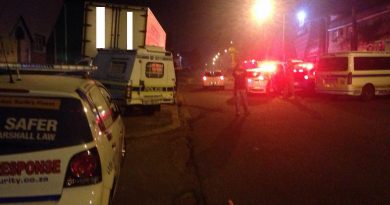Which questions need to be asked to ensure effective restaurant and hotel insurance?
Restaurant and hotels owners should recognize that their needs may differ significantly from that of their competitors. Not only do their menus and offerings to clients differ –but so too the insurance risks they need to guard against. They should take the time to consider their individual needs, expectations and fears when addressing insurance concerns with their insurers.
What are the most important types of questions that a restaurateur or hotel owner should ask his insurance company? What are the most important concerns to be addressed?
• Type of business that will be insured – as different business types carry different ratings in terms of premiums and it may even have different underwriting requirements
• Make a decision on the risks that exist in terms of insurance cover and the ones that must be covered
• Understand what is currently insured and what is not insured
• Most insurance policies are “peril” based and the cover is not on an “all risks” basis. The insurer will only cover the perils covered by the policy
• Understand the special conditions, specific underwriting requirements and policy exclusions to avoid any “surprises” at claims stage
• Check and review the excess structures of the risks that are insured – some insurers make use of a percentage based excess structure – for example a R 1,000,000 fire claim with a 10% excess will mean the client must pay R 100,000 excess on the claim
• Request an inspection of the premises from the insurer to ensure “peace of mind” – remember insurers deal with claims on a daily basis and they will be able to offer the client advice and they will also be able to make some suggestions on how to improve or eliminate certain risks that may exist
• A written improvement guideline, confirmation or updated schedule containing all the special conditions and specific underwriting requirements can be requested once this inspection has been completed
• If anything needs to change, complete the changes and request another inspection to confirm that everything is in order in terms of the insurance cover
• Always make sure you ask your broker or insurer in situations where you are not sure on insurance related matters before you make a decision
How often do updates on insurance cover need to take place – i.e. only as the business grows, annually, etc.?
• The client is responsible to ensure the cover is always up to date to eliminate problems at claims stage in terms of under-insurance or risks that are not on cover when a claim is submitted
• An asset list or register should solve this problem in many cases and it must be easy to maintain and it must be kept in a safe place should something happen at the premises
• We have seen clients paying for risks that they don’t even own anymore because the cover was not reviewed regularly – for example someone that owns a fleet of vehicles in various cities or towns in SA and one of the vehicles was sold but the cover on the vehicle was never cancelled
• Insurers will also be able to assist the client in determining the correct insured values for the items that must be insured
Do you have Emergency Planning and Evacuation Procedures?
Hospitality establishments are public places, with wide open doors that are intended to be inviting to the public, and are also have extended trading hours – how does this impact on the kind of insurance cover they need to have?
• Employee training – It will be very important to ensure that all the employees are properly trained for emergencies and an “action plan” must be in place to reduce losses and to save lives when an emergency occurs. They must also be trained in the use of fire prevention equipment and first aid.
How effective is your Administration and Keeping of Records?
Good record keeping is always a problem. Clients must ensure they keep proper records. Good record keeping will also speed-up the claims process. The following important records should be kept:
- Guest or client details – contact numbers, personal details etc.
- Staff records
- Financial records
- Stock records
- Invoices and proof of purchase
- Contracts with suppliers
How much can you trust your employees?
Employee dishonesty (Fidelity cover) – Theft and fraud committed by employees is usually excluded unless this cover is selected. This will then cover theft and fraud committed by employees. It will be important to keep proper records of staff and regular stock-takes and audits must be done to reduce this exposure
How can I reduce the risk of theft?
Access control is a very effective way of reducing the theft risk. Installing alarms is not always practical and it can be very costly. Security guards and strict instructions to these guards and armed reaction companies will also reduce this exposure. Theft cover should always be discussed and a “worst case” scenario must be applied to the cover as most clients only select a first-loss type of cover on theft. This will then only cover the amount selected and nothing more. These limits are sometimes too low and the client could be out of pocket after a loss.
Conclusion and Advice
Many of the insurance concerns can be addressed by paying more attention and doing due diligence at the time of purchasing the insurance cover!
Find an insurer who will inspect and survey the risk based on certain underwriting rules (risk values, premium etc.) at your request. The insurer must be able to assist and explain all the relevant covers, special conditions, underwriting requirements and answer any questions you might have.
[A word of appreciation to Outsurance for the assistance received]
Also view:
What are the important security issues to be covered by insurance for restaurants and hotels?




